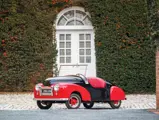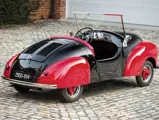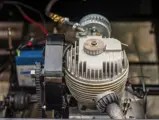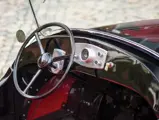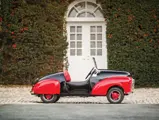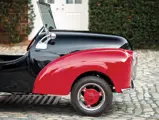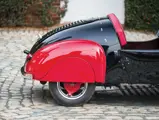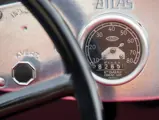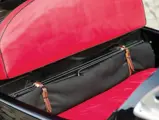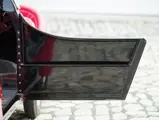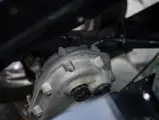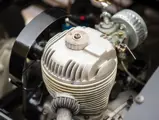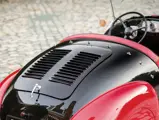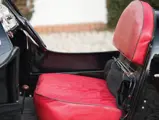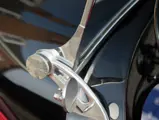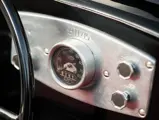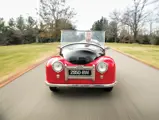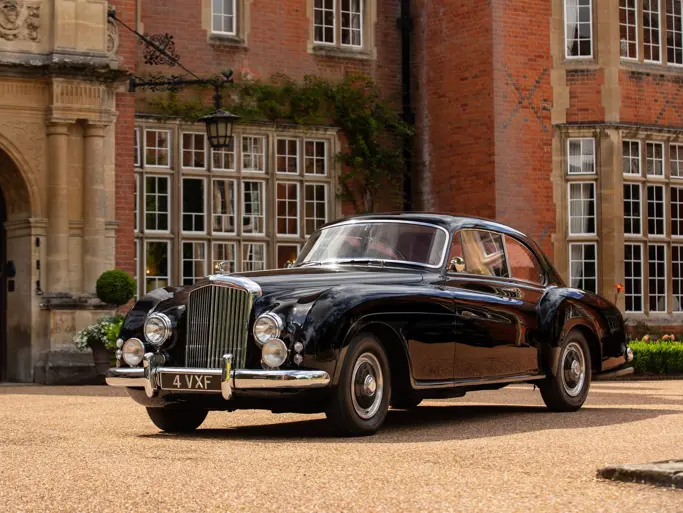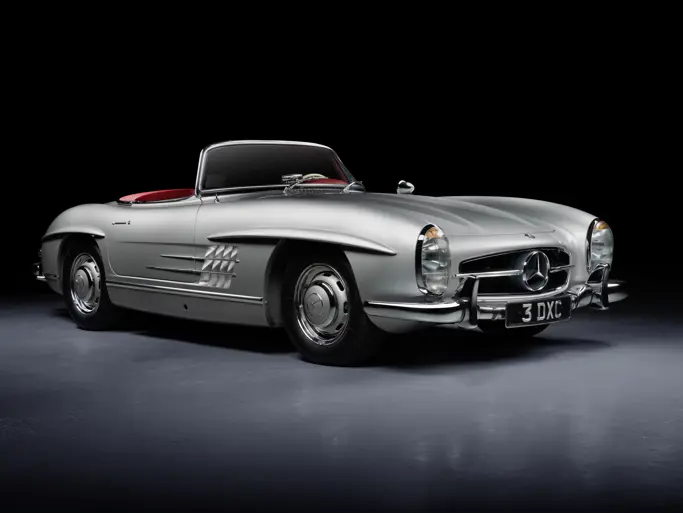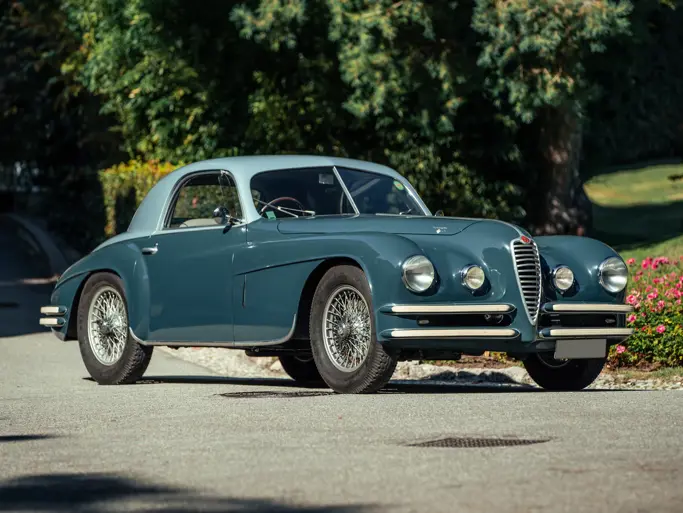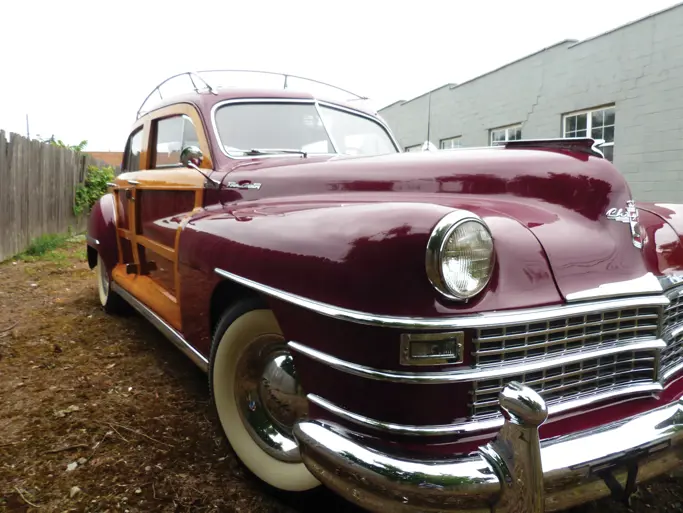Amelia Island 2017
1951 Atlas Babycar 2S
{{lr.item.text}}
$30,250 USD | Sold
 | Amelia Island, Florida
| Amelia Island, Florida
{{internetCurrentBid}}
{{internetTimeLeft}}

- Formerly of the Bruce Weiner Microcar Museum
- An exceptionally well-built, high-quality French microcar
- Beautiful restoration, well maintained
- Extraordinarily rare
8.5 hp, 175 cc AMC four-stroke single-cylinder engine, four-speed manual transmission plus reverse, A-arm and coil spring front suspension, triangular trailing arm rear suspension, and four-wheel cable-operated drum brakes. Length: 108 in.
One of the most interesting post-war French microcars, the tiny Atlas Babycar was developed as a prototype by the Société Annonay Sofravel (S.A.S.), shown at the 1948 and 1949 Paris Salons, by the Societe Industrielle de Livry (S.I.L.) of Paris, and was manufactured by Duriez.
Featuring a modern roadster shape with rounded, bulbous fenders, the design of the Atlas was rendered entirely in steel, on a well-engineered chassis with a strong tubular frame, coil spring front suspension, rack-and-pinion steering, and cable brakes at all four wheels. Several engines of different sizes were experimented with early in production, with the final propulsion being a 175-cubic centimeter AMC single-cylinder engine. Circumventing the need for an expensive differential, the engine drove only the left rear wheel, via a Cardan shaft, to a cable-operated separate gear case incorporating a reverse gear. Starting was via a floor-mounted pull-lever in the cabin, while the wheels were attractive two-piece aluminum castings.
The same basic design of this little car was used for two other S.I.L. microcars of the era, the Kover and the Le Piaf, with the Atlas being the most expensive and best-trimmed, featuring such “luxuries” as doors (!), a folding windshield, built-in headlamps, and baroque grille and headlamp alloy castings.
Despite such a broad range of offerings, the S.I.L. microcars did not enjoy tremendous success, and the company was not heard of following an appearance at the 1953 Paris Salon.
The Babycar offered here, among the very finest in existence, was formerly part of the renowned Bruce Weiner Microcar Museum in Madison, Georgia. Discovered in original condition in France, its exceptional rarity and elegant roadster lines made a thorough and accurate restoration imperative. Reference material from the post-war French press was in scarce supply, and much use was made of the jeweler’s loupe in studying the period photographs. Fabrication of the ornate alloy grille castings was particularly trying. A poignant statement about the scarcity of materials of the time was the discovery of one-franc coins being used in place of steel flat washers on the Atlas’ steering arms.
In its current ownership, the car has been thoroughly mechanically sorted and is now reported to be running and driving very well. Beautifully presented, it is a remarkable microcar with superb quality throughout, deserving of a home in any fine collection.

